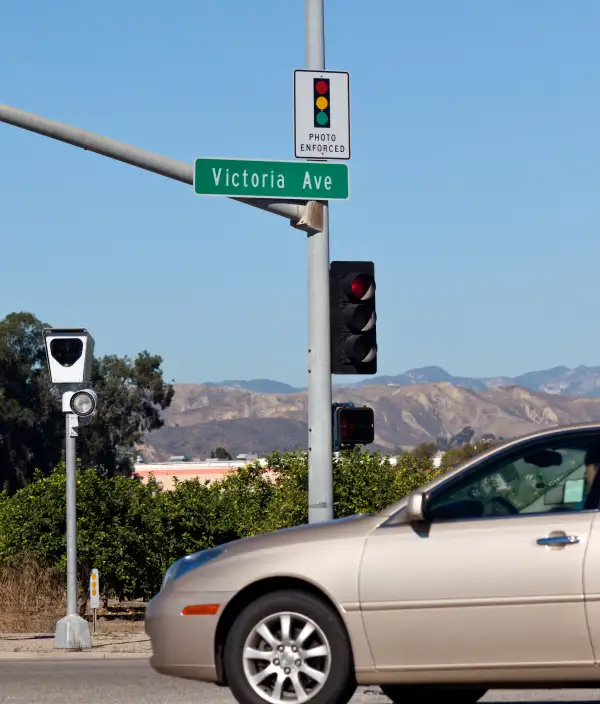The Car Tech That Could Eliminate Speeding Tickets

The 2015 Hyundai Genesis has been getting mostly positive reviews from car experts. Kelley Blue Book, for instance, described the new model—the affordable automaker's high-end vehicle aimed to compete in the luxury category with Mercedes and BMW—as "beguilingly quick" and still very "comfortable and quiet." And the automatic braking system is a potential life-saver: Using cameras and radar sensors, the vehicle can sense danger up ahead and hit the brakes automatically if the driver hasn't already reacted.
Yet one of the coolest features in the vehicle's automatic braking system has been overlooked in most American reviews, which isn't surprising considering that the technology won't be available in the U.S. market, at least not yet. As first reported in Australia's Driver.com.au, Hyundai spokesman Guido Schenken explained that the new Genesis's GPS is preloaded with the locations of roadside cameras that track speeding cars and dish out tickets when appropriate. The car then alerts the driver that he's about to zip past a camera and, if necessary, the brakes are applied automatically so the vehicle isn't over the local speed limit.
"It will beep 800 metres before a camera and show the legal speed, and it will beep at you if your speed is over that," said Schenken. "It knows there is a speed camera there, it knows where the speed camera is and it will adopt the correct speed."
The technology, which is expected to be offered in the near future only in a select few markets, including Australia and South Korea, has the potential to save drivers from hefty speeding ticket fines—at least those generated from roadside cameras. It also shows a glimpse into the likely future for all drivers. Even before the era of fully-fledged self-driving cars, tools such as this will probably "take over" cars in a smaller, piecemeal manner and help drivers out in ways our grandparents could never have imagined.
On the one hand, using advanced technology just to save lawbreakers from having to pay speeding tickets may seem frivolous, and perhaps even a bad idea. In fact, there's a good argument to be made that this is a misuse of technology that will actually make roads more dangerous as it helps drivers speed more without the fear of getting busted holding them back.
On the other hand, roadside cameras are almost universally hated by drivers, so the technology is bound to be adopted wherever it's legal. What's more, driver groups like to highlight statistics indicating that cameras installed to catch speeders, people who roll through STOP signs, and such can themselves cause accidents. How? Basically because when drivers see the cameras at the last minute, they tend to slam on the brakes, increasing the chances of rear-end collisions.
For what it's worth, the technology exists right now to help drivers avoid getting ticketed via roadside cameras, and it doesn't require the purchase of a Hyundai Genesis or a move to South Korea. GPS manufacturers such as TomTom and Garmin offer a range of subscription services that maintain updated lists of roadside camera locations, and the service will beap at the driver as he's approaching one. "This service helps drivers to be safer on the road and avoid costly traffic tickets," the TomTom site explains. The Phantom Alert smartphone app, which costs $10 per month or $30 for a year, works similarly.
Just don't go expecting the car to slow down automatically when the camera alert goes off. It's up to you, the driver, to actually hit the brakes and get down under the speed limit.
